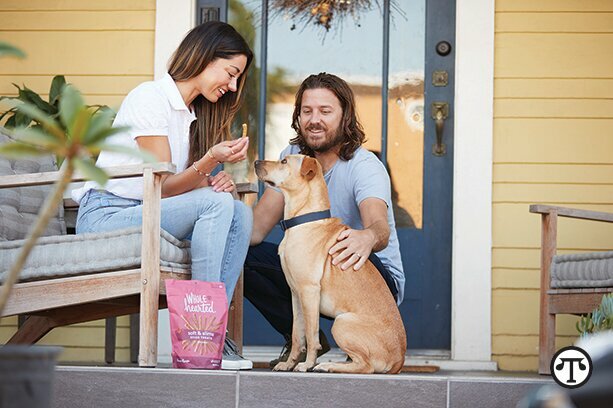by Darris Cooper, CPDT-KA, FFCP(NAPSI)–Many people found comfort in their animals during the pandemic, whether they already had a pet, newly adopted, or helped care for a family member’s pet. Four years later, puppies adopted during the pandemic are now entering adulthood, while dogs adopted as adults are approaching their senior years. As your dog transitions to new life stages, training is an important part of a well-rounded health and wellness routine that will keep your pup happy and healthy every step of the way: • Enlist the pros: Pet parents may be struggling with unwanted behaviors that their pups have picked up over the past four years, often driven by separation anxiety or social anxiety. As a first step, it’s important to consult your veterinarian to rule out any underlying health issues. Fostering a safe home environment and consulting with a certified dog trainer, and in some cases even a certified separation anxiety expert, are critical to addressing your pet’s needs. • Safety and preparation first: When training your dog on a leash, having a properly fitted collar and harness is important for their comfort and safety. Before taking your pup out and about, I recommend getting them microchipped and registered in the Petco Love Lost database for extra peace of mind. The right tools are essential for training and include things such as training treats, a training clicker and a treat pouch for quick access to your pet’s bite-sized rewards.• Consistency is key: Training is beneficial for your pup through all stages of life and it’s never too late to learn new skills. Petco’s certified dog trainers offer in-person and online classes in one-on-one and group settings. Petco’s trainers are AKC Canine Good Citizen (CHC) Evaluators–they offer a prep course and can administer the AKC S.T.A.R. Puppy and CGC tests. The most effective training sessions are short and consistent and end on a positive note, as dogs will likely retain the last thing they learned. I work with my pups, Zakai and Kalea, throughout the day, as it allows me to reward desired behaviors while providing them with structure and routine. For energetic pups that may have trouble focusing on the lesson, try taking them on a walk or playing with them to work off extra energy. Training sessions are great for both physical and mental stimulation. • Playtime with a purpose: Outside of dedicated training time, puzzle toys and chew toys can keep your pet mentally stimulated and eliminate pent-up energy, which can result in unwanted behaviors. Puppies and senior dogs can benefit from enrichment such as toys that are easier to chew, while senior dogs may prefer to avoid games such as fetch that require large amounts of energy exertion. All dogs are individuals, so pet parents should go at their pace. Scheduling a puppy playdate or going on a fun outing can be another exciting way to keep your dog happy and engaged, though it’s a good idea to make sure any playmates match your pup’s energy levels, play styles, and physical abilities to avoid accidental injuries.• Nutrition as the basis of health: Ensure your dog is in the best shape possible by giving them age-appropriate food. There are special formulas for puppies and senior dogs with added nutrients that cater to their unique nutritional needs, while supplements are another great addition to your pet’s diet. From omega 3 fish oil to hip, joint, skin and coat supplements for senior dogs, there’s always a little something extra that can give your pup a boost. It’s also essential to schedule regular vet check-ups and grooming appointments to ensure pets look and feel their best. For additional resources including guides, checklists and more to help your pets navigate life stage transitions, visit petco.com or Petco pet care centers nationwide.• Darris Cooper is the National Dog Training Manager at Petco. He has worked in the industries of animal training and behavior, pet lifestyle and broadcast journalism, and has been a professional dog trainer for more than 10 years.
A Dog Trainer’s Top Tips to Support Pets Through Life Stages





